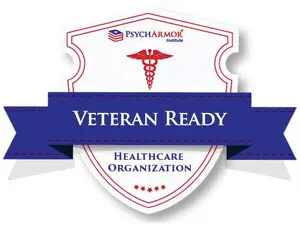Talking With Your Family About Addiction
 Sometimes adding to the complication of addressing addiction is seeking support from family members, especially if they were caught in the crossfire of any maladaptive behavior before you decided on treatment. This topic is even more touchy if family history is a contributing risk factor for your condition. Here are some ideas that might help.
Sometimes adding to the complication of addressing addiction is seeking support from family members, especially if they were caught in the crossfire of any maladaptive behavior before you decided on treatment. This topic is even more touchy if family history is a contributing risk factor for your condition. Here are some ideas that might help.
Starting the Conversation
Who do you need to talk to about your condition and treatment? It’s your choice. If you feel the gossip mill will distort the facts, you can arrange a collective conversation with various relatives. If you’d rather focus on immediate family, that’s good, too.
Prepare to be clear and direct. Here’s a potential roadmap of how to approach it.
- The circumstances that led to your addiction. It’s your right to decide how much detail to share. Consider who you’re having the conversation with and what information truly matters for the scope of that relationship.
- How treatment was beneficial. The American Medical Association indicates that only about 10 percent of the more than 20 million Americans with substance use disorder (SUD) or alcohol use disorder (AUD) get treatment. Talking about how treatment benefited you might help your family understand the complexity of addiction and what you’re doing to succeed in recovery. Each individual has different issues, but it might be also necessary to work with family members to address topics such as abuse, blame, shame, and other factors that contribute to substance use
- What “working the steps” means. Since 12-Step programs are frequently a vital component of individual treatment and recovery, you can form a bond over certain aspects of working the steps. You can also encourage close relatives who have yet to choose therapy themselves to check out the family support available through 12-Step programs such Al-Anon or Nar-Anon.
- The recovery process. A lot of people think of “rehab” as only detoxification, unaware of the other critical layers of whole-person treatment, such as in-depth therapy, nutrition, exercise, support groups, and other factors that reinforce recovery. You can choose to highlight some specific techniques you rely on to maintain your recovery.
- How they can help. Asking for their support, outlining certain triggers you need help avoiding, and reinforcing the need for progressive attitudes are just a few ways you can include loved ones in the recovery process. Stay rational and seek to unite with them on positive solutions.
Additionally, the majority of addiction treatment programs frequently include a family education and therapy component. This focused care often helps mend the bonds strained by addiction and might be the gateway to more meaningful conversations.
Drawing a Line with Family Members
Separating yourself from toxic people—including family members—is difficult, but often a life-saving act that creates a more stable foundation for long-term sobriety. Naturally, you might feel a strong sense of love and loyalty, and it’s also quite common to feel guilty and thus obligated to maintain a relationship.
However, if you’ve tried to have healthy connections with certain people and they still won’t respect your boundaries for recovery, or if they consistently draw you into drama; lie to, manipulate, or betray you; or belittle you and/or your efforts, it’s time to sever the ties.
Psychotherapist Sharon Martin outlines how this might happen:
- Acknowledge once and for all that a relationship is abusive. “You need to stop minimizing and denying the harm that your family member has caused.”
- Stop expecting them to change—you’re only responsible for the change you create; you have no control over what they will and won’t do.
- “Grieve the loss of having the kind of relationship you wanted with this person. Grieve the loss of having the parent/sibling/grandparent that you needed and deserved.”
- Finally, make sure to get the support you need with a qualified therapist. You might also benefit from specific support groups, 12-Step groups, and friends who’ve also had a similar experience with their family members.
Once you make this decision, there’s one more important step in the process. You’ve probably heard that continually holding resentment and anger against people who wrong you is only going to make life worse for you—not them. This concept always sounds good in theory, but is challenging to put into practice, especially if you’ve experienced abuse and other trauma as a child or adult from family members, or discovered in treatment a generational link to your addiction. These and other triggers complicate matters as you focus on a healthier future.
It’s essential for your overall wellness to learn how to accept the past and forgive these individuals. The Mayo Clinic points out that not doing this creates more harm for you in various ways, including:
- Extending this deep-rooted anger and bitterness into other relationships and experiences
- Losing a foothold on healthy, loving relationships you already have
- Focusing too much on past wrongs and stealing time from enjoying present moments
- Increasing feelings of anxiousness, depression, and irritability
- Having difficulty finding peace and contentment
New Jersey Family Addiction Recovery
To help you and your family begin the healing process, the addiction professionals at Seabrook designed a unique program called the Family Matrix, which allows your loved ones to:
- Learn about the disease of addiction and get the latest research about SUD and AUD
- Understand how addiction affected you
- Discover common goals in recovery
- Identify enabling behaviors
- Set appropriate boundaries
To learn more about Seabrook detox, rehab, and family counseling services, call our admissions team today.




